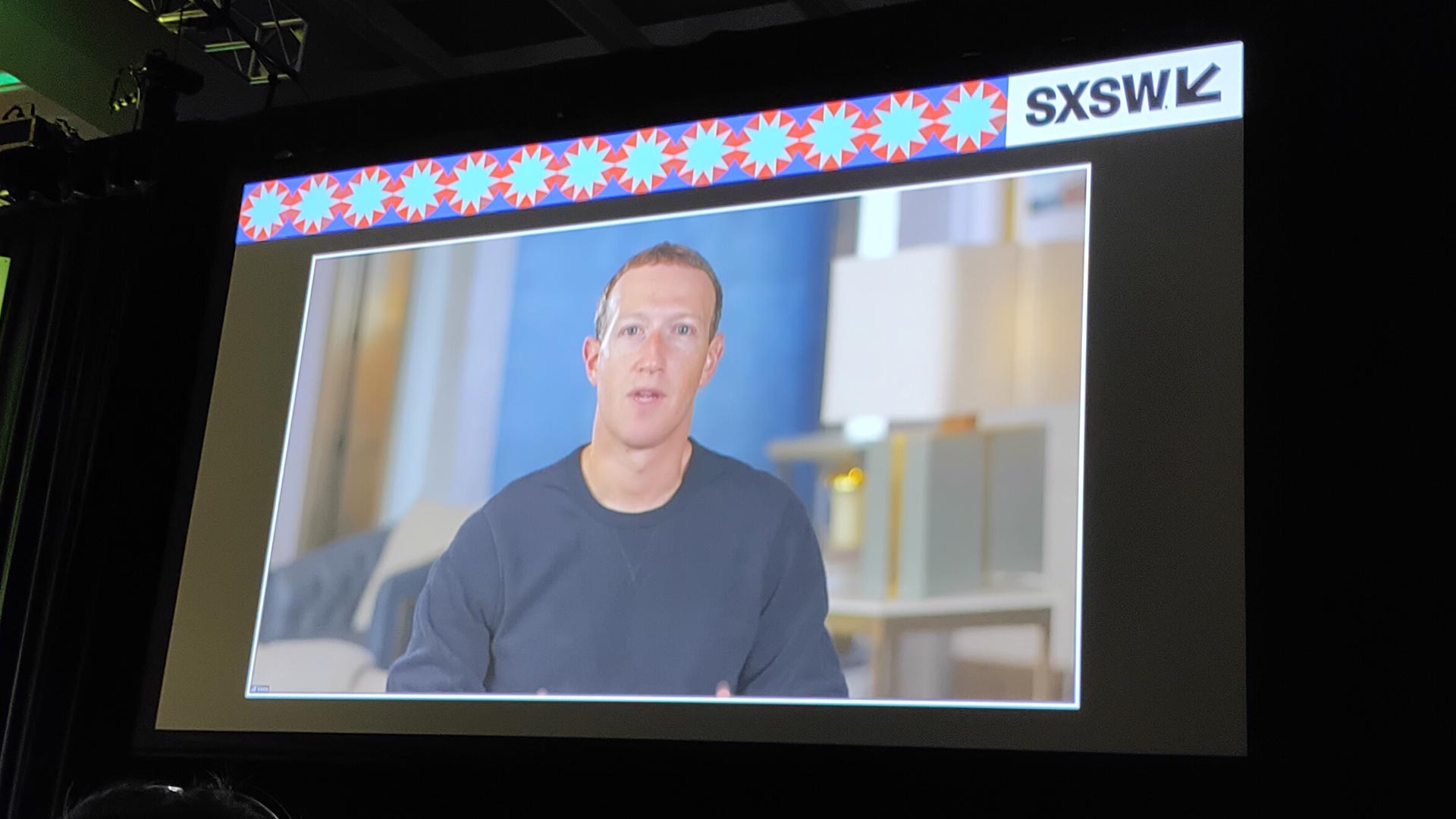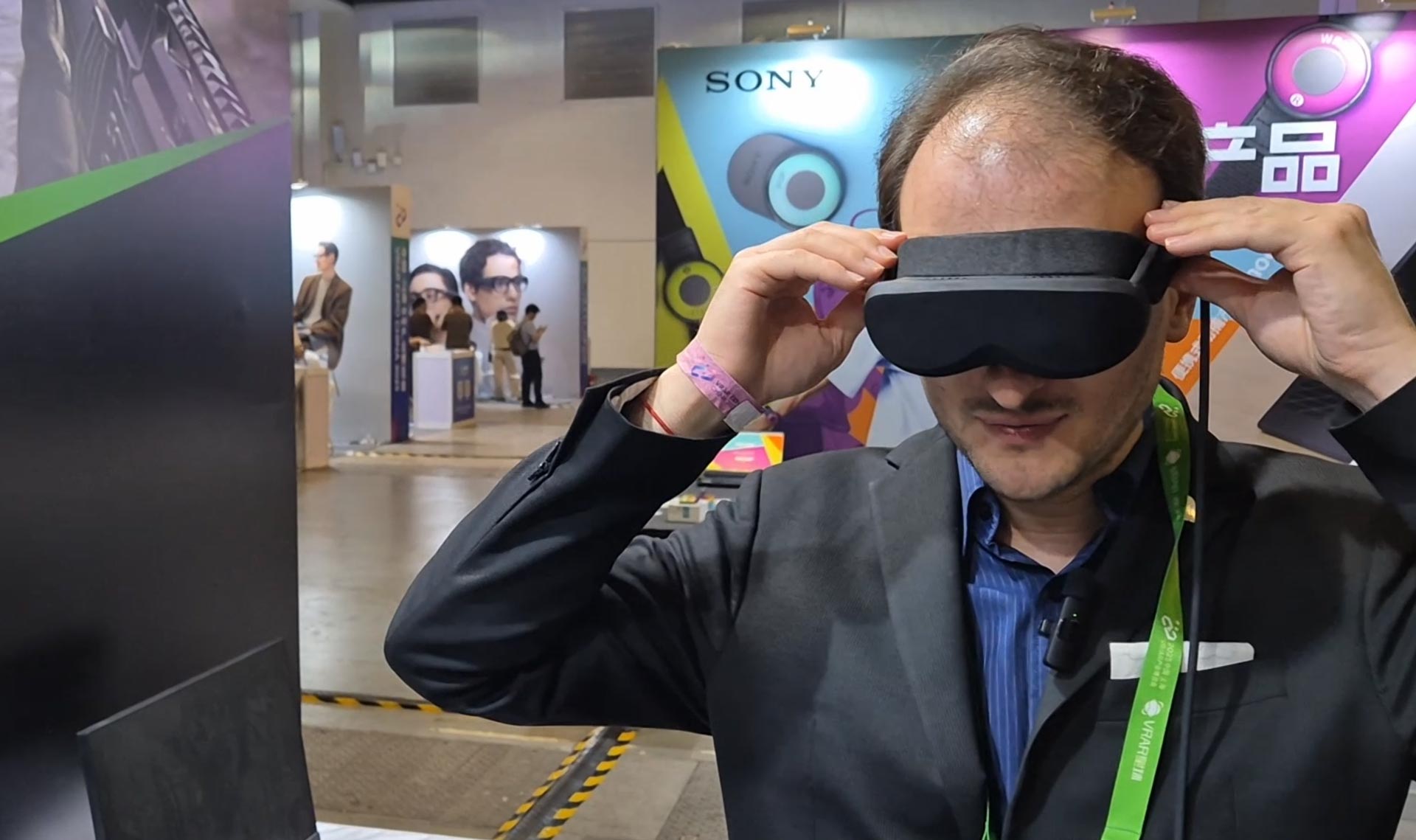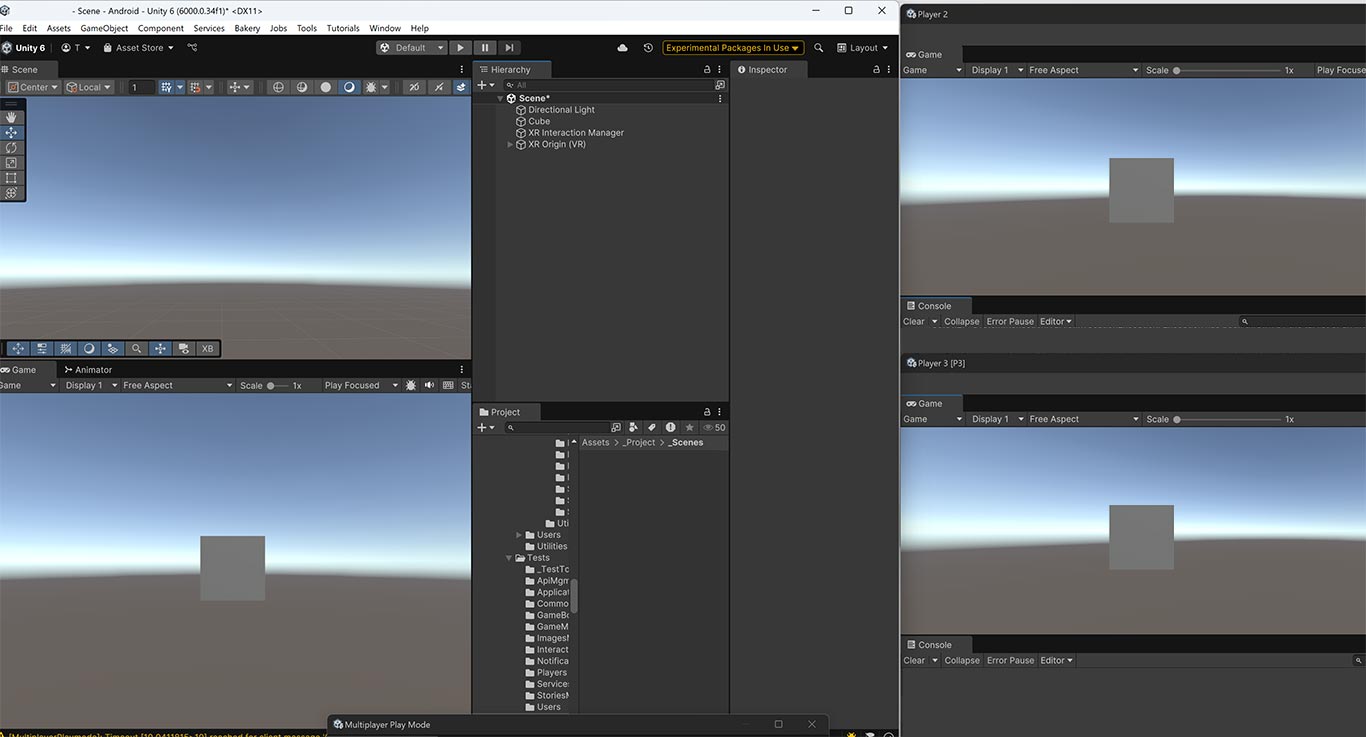Mark Zuckerberg talks about his vision for Meta at SXSW
In my visit to SXSW, I could not miss the fireside chat with Mark Zuckerberg that took place two days ago. I have never seen Zuckerberg in real life, and even if he was in streaming, it was anyway intriguing that he was speaking live and also answering live to the questions of the audience, so it was a bit like having him in the room with us. I’m not a big fan of Zuck, honestly speaking, but he’s still the CEO of the most important XR company in the world, so it’s worth listening to what he has to say. And seeing his big face and listening to his words was in the end an interesting experience.
If you are afraid of having missed some big announcements, relax. During the interview, the Zuggity Zuck just repeated the same things we have already heard a bazillion times: his vision for the “metaverse”, the importance of the metaverse in connecting people, the effort that Meta is doing towards the metaverse, etc… etc… Nothing that I’ve heard was new or particularly intriguing: if you are not new to the spatial community, you already know all of this.
But there were some sentences here and there that were worth listening, and I’ve written them down so that I could share them with you. This way you can avoid spending one hour watching the big Zuck’s face yourself too. But it’s your choice: maybe you just want to watch it anyway and make a drinking game that every time you hear him say the word “metaverse” you drink one shot: honestly I wouldn’t advise that, because you would get into an alcohol coma after 10 minutes I guess.

Here you are the notes that I’ve taken about the interesting bits from Zuckerberg’s interview:
- Zuck doesn’t like that the metaverse gets defined as the “evolution of the internet”. In his opinion, it is something different, because the metaverse is immersive, it lets you enter inside the environments and embody different bodies, something that is impossible over the internet. He thinks that the “evolution of the internet” may sound reductive because it is much more than an “Internet v2.0”, it is a complete revolution on how we interact with technology and how we live in general. I don’t agree with him, but I understand his point
- He believes that every user will have different avatars in the metaverse. Some of these will feature the real aspect of the user, others will be playful, others totally crazy, like a dragon. There will be photorealistic avatars and cartoonish avatars. So every one of us will have a digital identity that is not bound to a single appearance like in real life
- Meta is doing everything it can to make avatars that are inclusive for everyone: it is also working on avatars that are on a wheelchair, something that is very rarely available on the various social VR platforms. I have already appreciated of Meta Avatars that they are the most inclusive system, but they plan to extend it even more
- Mark stressed the concept that there will be a creator’s economy about avatars and their accessories. And also he underlines once more how there should be interoperability with the bought digital assets: if you buy an accessory for your avatar in an application, it should be available also on the others. He seems to believe that Web3 technologies could help in offering this kind of ownership and interoperability, and that’s why Meta is already integrating NFTs inside Instagram
- Our spatial future may break the current relationship between where you were born and your expectations for your future life. Nowadays, the probability of a person to have a certain future are directly bound to the place where he/she has born: if you live in a poor village in Africa, it is much more difficult that you become a renowned surgeon than if you are born in San Francisco, because most probably you don’t even have a good medical school in your surroundings. But with XR, it would be possible for an inhabitant of such a village to attend an important university in the US and fulfill his dreams. This is great to foster more equality in the world because this would mean breaking the physical barriers between countries and offer the same opportunities to everyone. Honestly, while I like this vision, I think it over-simplifies reality and under-estimates the power of us humans to create barriers: for instance, it is true that the poor villager in Africa can attend the university in the US, but the lessons would be in English, a new language he should learn, and there would be the expensive tuition of American colleges to pay to attend the lessons; plus I’m not so sure that we won’t create some limits for the digital “immigration” of people like today we create them for the physical one
- He believes that workplaces are going to become always more remote and distributed. Horizon Workrooms is built to realize this vision. Meta is dogfooding Horizon Workrooms to its own employees and invites them to use the software not only for meetings but also to work remotely and feel in the same office at the same time even when being in distant places

- The big transition to “Meta” has happened because they realized that the metaverse was the most important and most-impactful technology in the long term. So even if it is not the one generating the most revenues now, it is the one that will be more disruptive in the long-term
- Speaking about this bet, Zuck has said what I think has been the best thing of the whole interview. “Believing in something is one of the most powerful tool as an entrepreneur”, he said. When he started with Facebook, people believed the company could not make it, because it looked like a University students thing; then they thought it could not scale enough; then that it could not make enough money; and so on… but Zuck kept fighting for his vision, and proved them wrong at every step of Facebook’s growth. We can criticize Zuckerberg on many things, but for sure he’s someone that has fought for his vision over the years… and he is doing this also now, with this bold pivoting to Meta, something that many entrepreneurs would have been scared of doing. “The future belongs to people that believe in it more than others” is the powerful sentence he said to close this topic. I think that every entrepreneur should read this sentence at least 10 times a day
- Answering to a question about why Meta is better than its competitors, Mark said that its unique advantage is that it is working on the whole tech stack of the metaverse: many competitors are working on only one or a few aspects, while Meta is developing the hardware to access it, the applications to use in it, the avateering and digital identity systems, the SDKs to create applications for it, the cloud technologies, etc… Personally I think that nowadays it is true, but it won’t be like that forever: Apple has the DNA to do something similar, for instance
- Augmented Reality glasses are still “years off”, according to him, both for what you would call true “augmented reality” and for what you would call “glasses”
- He also compared the Quest to the iPhone, something that I’ve already heard many times in the XR communities
- When asked about the difference between Meta and Roblox and Fortnite, which are defined by many as “present-time metaverses”, he has answered that while these applications are cool, they are still games at heart, while Meta is looking to build something that is more “social” at heart. Plus, Meta is not interested in building only one platform (e.g. Horizon Worlds), but in working with its partners on standards that make its platforms interoperable with the ones of the others, to create a network of platforms in which the user can jump from one to the others. This is what the true metaverse is, according to Mark. Roblox and Fortnites are just isolated platforms, at least for now, so they don’t fulfill this vision (Thanks Maud for having helped me in understanding this answer)
- He also underlined once more that eye contact is important, and that Zoom calls are alienating because you never understand where you have to look, and you never look people in the eyes. I think this confirms once more that Project Cambria and probably also all the future Quests will feature eye-tracking… a technology that would be also important for the data collection business that Meta runs
And that’s it. As you can see, nothing mindblowing, but still some interesting sentences to read. My favorite part of the whole interview has been the one about inviting entrepreneurs to believe in their vision: “The future belongs to people that believe in it more than others” is a great life lesson.
What about you? Is there something else that has intrigued you? Do you agree with Mark’s words? Let me know in the comments (but not before having shared this post with your peers on your social media channels!)
Disclaimer: this blog contains advertisement and affiliate links to sustain itself. If you click on an affiliate link, I'll be very happy because I'll earn a small commission on your purchase. You can find my boring full disclosure here.



